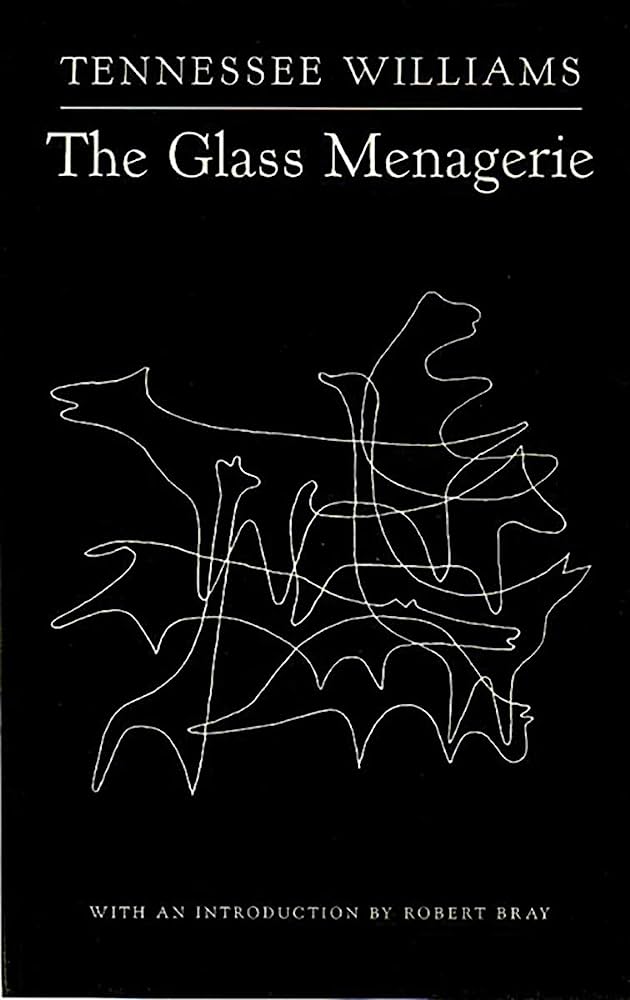Introduction
“The Glass Menagerie” is a timeless American play that is a poignant and evocative exploration of family, memory, and the struggle for personal fulfillment. Written by the iconic playwright Tennessee Williams, this classic work first premiered in 1944 and has since become an enduring masterpiece of American theater.
Set in a modest apartment in St. Louis during the throes of the Great Depression, “The Glass Menagerie” introduces us to the Wingfield family, whose lives are steeped in the shadowy remnants of a bygone era. At the helm of this fragile household is Amanda Wingfield, a former Southern belle now resigned to her circumstances as a single mother. Amanda’s relentless desire to secure a future for her children, Tom and Laura, provides the play’s emotional core. Her attempts to relive the grandeur of her youth and to find suitable suitors for her shy and physically impaired daughter, Laura, create a palpable tension within the family.
As the characters grapple with the weight of their past and the uncertainty of their futures, “The Glass Menagerie” invites audiences to reflect on the universal themes of yearning for freedom, the consequences of escapism, and the power of memory to both heal and haunt. Williams’ portrayal of the Wingfield family transcends time and place, resonating with anyone who has experienced the complex dynamics of family, the yearning for personal fulfillment, or the bittersweet tug of nostalgia.
Analysis
Characterization
- Amanda Wingfield
Amanda Wingfield’s perspective of life ranges from illusion to reality. Whenever difficult moments occur to her, she would rather close her eyes to the harshness and escape in illusions. The most evident example of this case is regarding her daughter’s handicap. She refuses to acknowledge that Laura is crippled and instead views her as having only a slight physical defect.
As the play progresses, Laura eventually breaks free from her delusions and is forced to face the pressures of her everyday life, notably Tom’s desire to leave.
- Tom Wingfield
Tom is a character that has been caught in materiality. From a free-spirited person who had to cut his wings and provide for his family with a job at a warehouse. Even though he was forced to put a pause on his dreams, Tom does often seek comfort in his illusions of writing.
To escape his harsh reality of working at a job he hated, Tom would escape to the movie theatres, often intoxicated. However, this was his only taste of creativity, which he so desperately sought.
Eventually, his mother’s overbearing presence forced Tom to leave his family in pursuit of his dream to become a writer. He realized that his creative abilities were being destroyed by his surroundings and that if he did not act quickly, he would suffer a lifetime of What if?
“Then all at once my sister touches my shoulder. I turn around and look into her eyes. Oh, Laura, Laura, I tried to leave you behind me, but I am more faithful than I intended to be! I reach for a cigarette, I cross the street, I run into the movies or a bar, I buy a drink, I speak to the nearest stranger—anything that can blow your candles out!”
Tom Wingfield
- Laura Wingfield
Laura is a shy and sensitive person, especially in contrast to her mother’s brutal nature. Her sensitivity is most notable with her physical defect, a limp, which she magnified for it to pretty much become her entire personality. She believes her limp prevents her from living a normal life, so instead of fighting back, she allows her limp to swallow her up.
When she is faced with an opportunity to break free, the arrival of a gentleman caller named Jim, we are provided a peek at Laura’s true charm. However, as the evening comes to an end, we realize Laura is not ready to step into the real world, and retreats into her world, of a fragile and sensitive person.
Symbolism
- The Glass Menagerie
As the title of the play suggests, the glass menagerie is the play’s main symbol. Laura’s collection of glass figures symbolizes fragility, uniqueness, and the desire for a perfect, delicate world. Each figurine represents a facet of Laura’s personality and her longing for a life untouched by the harsh realities of the real world.
- Blue Roses
“Blue roses” is another representation of Laura’s character. The term is misunderstood by Jim, Laura’s suitor, who thinks she had “Blue roses” as a child instead of the illness she actually had, pleurosis. This misunderstanding becomes a symbol of Laura’s uniqueness, which is frequently overlooked by others due to her shyness and physical disability.
Conclusion
In this enduring work of American theater, Tennessee Williams masterfully weaves a narrative that leaves a lasting impression, reminding us of the enduring power of live performance to evoke empathy, provoke introspection, and shed light on the intricate tapestry of the human experience. “The Glass Menagerie” continues to be a moving testament to the enduring relevance of classic drama and the enduring legacy of one of America’s greatest playwrights.



